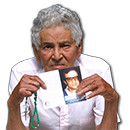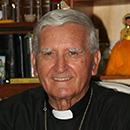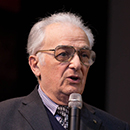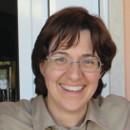
– Alessandro Nottegar
I remember that once I went with Doctor Nottegar to visit a sick person in a hut in the middle of an Amazonian forest, but, when I got to the door, I was not able to enter: there was a horrible smell, of putrefied flesh, which prevented me from entering.
I stayed at the door, I took a step back. Doctor Alessandro, however, entered the hut with a smile: there was only a hammock, and small table and the sick person. I remember how he knelt in front of the man, and started to remove the bandages from the feet. The smell got stronger, but his facial expression didn’t change.
That day I understood that many can treat a patient, but what makes the difference is the intensity of love with which Doctor Alessandro gave his treatment.
Alessandro Nottegar worked with lepers in Porto Velho, in north Brazil, where for a good fifteen years there had been no doctor. He settled with his family in a small house inside the leper hospital.
Alessandro had a great love towards lepers.
He worked in the leper hospital all day and often he would get up during the night to see if one of the sick needed something. Seeing that at night the hospital had no electricity, he used to visit the various pavilions using an electric torch.
He also worried about the morale of the sick, which was often very low, and every afternoon he organized volleyball matches with them.
He played football with the young boys.
All the sick were enchanted by this Italian doctor who would stop to talk to them, who treated them as equals, who went to visit them with his wife and daughters.

“When the doctor came to examine me he would say: - So my friend, how are you? Are you well? When you feel unwell, don’t hesitate to call me, I am here for this. - No other doctor like him has been here since. It may be that one day in the future another does come, but I think it will be very, very difficult”.
– Adenor Carlos de Oliveira

“In him it was as if the figure of Christ had somehow taken shape. His way of speaking, his way of acting was the simple way that Jesus had chosen for himself to speak, to act: no pomp, no show...”.
– mons. Adelio Tomasin

“Today it is repeatedly affirmed that it is necessary to go from ‘caring’ to ‘taking care’. There are many studies that exist, many publications, many congressional communications. We are still discussing how to implement it. Alessandro implemented it thirty years ago; great faith and equally great charity sustained him. It arrived thirty years previously”.
– dott. Renzo Tessari

“Leaving for the mission in Brazil immediately after graduating in medicine does not simply mean being a volunteer, but sacrificing the most important years for establishing oneself as a doctor”.
– his eldest daughter Chiara